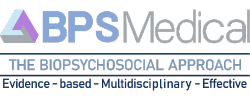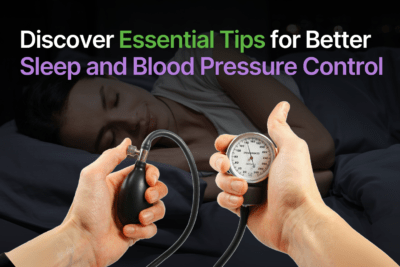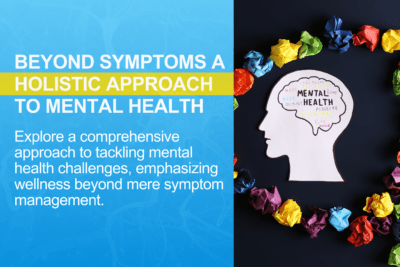Home » BPS Services | Mind and Body Wellness at BPS Medical in Ft. Lauderdale, FL » ADD Management
The Ultimate Guide to ADD Management: Techniques, Statistics, and Why BPS Medical is Your Best Choice
Managing Attention Deficit Disorder (ADD)
Attention Deficit Disorder (ADD), now commonly referred to as a type of Attention-Deficit/Hyperactivity Disorder (ADHD), is a neurodevelopmental condition that affects millions of people worldwide. Its hallmark symptoms include difficulty maintaining attention, impulsivity, and sometimes hyperactivity (although hyperactivity is less prominent in those with ADD). While ADD is commonly associated with children, it affects people of all ages, and its symptoms can persist into adulthood. Effective management is essential for improving the quality of life of individuals with ADD, and there are numerous strategies that can be employed.
At BPS Medical, we understand the complexities of stress and offer a holistic approach to stress management through our unique Biopsychosocial (BPS) Method. This approach combines insights from medicine, psychology, and social factors to treat patients holistically, ensuring long-lasting health improvements.
This comprehensive guide will explore the nature of stress, its impact on health, effective stress management techniques, and answer common questions, all while showing why BPS Medical is your trusted partner in the journey toward a healthier, stress-free life.
Complete ADD Management Guide: What You Need to Know About Treatment Options
What Is ADD and Its Impact?
ADD is typically characterized by a persistent pattern of inattention, forgetfulness, distractibility, and difficulty organizing tasks or activities. People with ADD may struggle to focus on tasks, listen carefully to others, or follow instructions. It can lead to poor academic performance, strained relationships, and challenges in the workplace.
According to the CDC, ADHD, including ADD, affects approximately 6.1 million children in the United States alone, which translates to about 9.4% of all children aged 2-17 years. In adults, an estimated 4.4% of the U.S. population experiences symptoms of ADD, with a large number remaining undiagnosed until later in life .
For children and adults alike, managing ADD is crucial for overall well-being and success. Without proper treatment, ADD can interfere with daily life, leading to issues like anxiety, depression, and poor academic or career performance.
What are symptoms of ADD?
Symptoms of ADD
ADD affects people differently, but there are a few core symptoms:
- Inattention: Difficulty sustaining attention in tasks or play activities; easily distracted.
- Forgetfulness: Frequently loses things necessary for tasks (e.g., toys, assignments, tools).
- Disorganization: Difficulty organizing tasks and activities.
- Procrastination: Delays in completing assignments or tasks.
- Trouble with follow-through: Fails to finish schoolwork, chores, or workplace duties.
- Avoidance of tasks requiring sustained mental effort: Tendency to avoid homework or projects requiring focus.
What Is ADD Management?
ADD management encompasses various strategies, treatments, and lifestyle changes that aim to minimize the impact of ADD symptoms. Successful management of ADD typically involves a multimodal approach—combining medical treatments with behavioral therapy, lifestyle adjustments, and support systems.
At BPS Medical, ADD management is approached using the BPS Method, a holistic approach that incorporates biological, psychological, and social factors into the treatment plan. This comprehensive model ensures that each patient’s treatment is tailored to their unique needs and circumstances. The BPS approach offers a deeper understanding of the underlying causes of ADD and seeks to treat the condition through a combination of therapy, medication, neurofeedback, and other proven techniques.
Top Strategies for Effective ADD Symptoms Management
ADD Management Strategies
1. Medication
For many, medication is the foundation of ADD management. Medications can significantly improve focus, reduce impulsivity, and increase attention span. Stimulant medications, like methylphenidate (Ritalin) and amphetamine (Adderall), are the most commonly prescribed for ADD. Non-stimulant medications such as atomoxetine (Strattera) and guanfacine (Intuniv) are also effective for some individuals, particularly those who may experience side effects from stimulants or have other coexisting conditions.
2. Behavioral Therapy
Behavioral therapy is often used in conjunction with medication to help patients develop coping strategies for ADD symptoms. Techniques such as Cognitive Behavioral Therapy (CBT) can assist individuals in learning how to manage impulsivity, organize their tasks better, and improve time management skills. CBT aims to change the negative thinking patterns that often accompany ADD by providing tools to improve self-regulation and focus.
3. Executive Functioning Skills Training
Executive functioning skills, such as planning, organizing, and managing time, are often impaired in people with ADD. Programs designed to improve these skills can be immensely helpful. Skills training focuses on breaking down tasks into smaller, more manageable steps, using visual aids or planners, and setting goals with clear deadlines.
4. Neurofeedback Therapy
Neurofeedback is a type of biofeedback that uses real-time monitoring of brain activity to help individuals gain control over their mental processes. This technique has shown promise in managing ADD, particularly by improving attention and reducing impulsivity . At BPS Medical, neurofeedback therapy is part of the holistic approach to ADD management, helping patients learn to regulate their brain activity and mitigate the cognitive challenges associated with the disorder.
5. Diet and Nutrition
A well-balanced diet can have a profound effect on ADD management. While diet alone cannot cure ADD, certain nutrients can support cognitive function and help reduce symptoms. Omega-3 fatty acids, found in fish oils, have been shown to improve attention and reduce hyperactivity in some children with ADD. Minimizing sugar and processed foods can help stabilize energy levels and reduce behavioral fluctuations.
6. Exercise and Physical Activity
Exercise is known to release neurotransmitters such as dopamine and serotonin, which are essential for focus and attention. Regular physical activity has been shown to reduce symptoms of ADD by improving mood, attention, and overall cognitive functioning. Activities that combine physical and mental engagement, such as martial arts or team sports, can be particularly effective in managing ADD.
7. Mindfulness and Meditation
Mindfulness and meditation practices have been shown to improve attention span and reduce impulsivity in both children and adults with ADD. Practices like mindfulness-based stress reduction (MBSR) encourage individuals to focus on the present moment, which can help reduce distraction and increase awareness of thought patterns. These practices, which BPS Medical encourages as part of the BPS Method, are easy to integrate into daily routines and can offer long-term benefits.
8. Parental Training and Family Support
For children with ADD, parental involvement is key to successful management. Parental training programs can help caregivers learn how to implement structure, create positive reinforcement systems, and manage disruptive behavior effectively. Family support also plays a role in adult ADD management by offering an understanding and accommodating environment, ensuring the individual with ADD has the tools they need to succeed.
Effective ADD Management Techniques for Children and Adults
Why Choose BPS Medical for ADD Management?
BPS Medical stands out as a premier choice for ADD management due to its unique Biopsychosocial (BPS) approach, which integrates the biological, psychological, and social factors influencing a patient’s health. Unlike many practices that focus solely on medication or a singular treatment method, BPS Medical takes a comprehensive, personalized approach. They offer a combination of evidence-based treatments including medication, neurofeedback therapy, cognitive-behavioral therapy (CBT), and lifestyle modifications to address the diverse needs of patients. This multi-dimensional strategy ensures that patients receive care tailored to their specific symptoms, challenges, and life circumstances, maximizing the chances for successful long-term management of ADD.
In addition, BPS Medical’s multidisciplinary team brings together experts from psychiatry, psychology, neurology, and neurofeedback. Each specialist works collaboratively to create an individualized treatment plan that considers the full spectrum of a patient’s condition. For instance, children and adults alike benefit from the expertise of Dr. Brian Greer, a highly regarded child and adolescent psychiatrist, who understands the unique developmental and emotional needs of younger patients. The combination of state-of-the-art treatments and compassionate, patient-centered care makes BPS Medical a leader in ADD management, helping individuals not only manage their symptoms but also improve their overall well-being and quality of life.
Statistics and Impact of ADD Treatment
Numerous studies demonstrate the efficacy of a combined approach to ADD management:
- Medication: About 70-80% of children with ADD show significant improvement in symptoms when treated with stimulant medications .
- Behavioral Therapy: CBT has been shown to improve executive functioning skills in 40-50% of individuals with ADD .
- Neurofeedback: Studies indicate that neurofeedback can improve attention and impulse control in patients with ADD by 60-70% .
- Lifestyle Modifications: Regular exercise has been found to reduce ADD symptoms by 30% in some individuals .
Managing ADD requires a comprehensive and individualized approach that considers both medical and non-medical interventions. BPS Medical’s unique biopsychosocial model ensures that patients receive a well-rounded treatment plan that addresses the root causes of ADD, not just the symptoms. By combining medication, therapy, neurofeedback, and lifestyle changes, BPS Medical empowers individuals with ADD to manage their symptoms effectively and improve their overall quality of life.
If you or a loved one is struggling with ADD, BPS Medical offers expert, compassionate care that takes into account the full scope of mental health and cognitive function. Their holistic approach is designed to help patients not only cope with their condition but also unlock their full potential.
For more information on how BPS Medical can help with ADD management, visit bps-medical.com.
Sources:
- CDC. (2023). Data and Statistics about ADHD. Available at: https://www.cdc.gov/ncbddd/adhd/data.html
- American Psychiatric Association. (2013). Diagnostic and Statistical Manual of Mental Disorders (5th ed.).
- Mayo Clinic. (2023). ADHD (Attention-Deficit/Hyperactivity Disorder) in Children. Available at: https://www.mayoclinic.org
- Healthline. (2023). Neurofeedback Therapy for ADHD. Available at: https://www.healthline.com/health/neurofeedback-therapy
- National Institute of Mental








